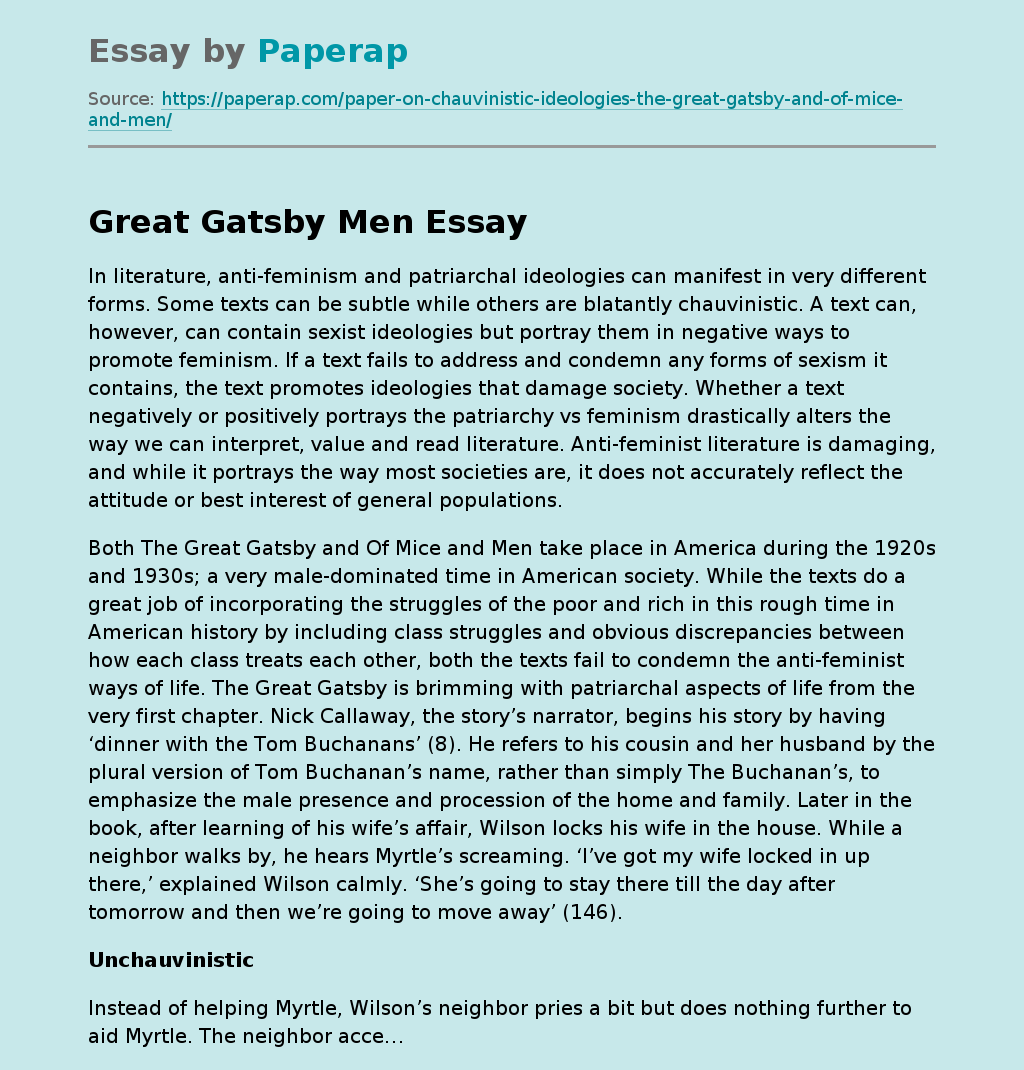Great Gatsby Men
In literature, anti-feminism and patriarchal ideologies can manifest in very different forms. Some texts can be subtle while others are blatantly chauvinistic. A text can, however, can contain sexist ideologies but portray them in negative ways to promote feminism. If a text fails to address and condemn any forms of sexism it contains, the text promotes ideologies that damage society. Whether a text negatively or positively portrays the patriarchy vs feminism drastically alters the way we can interpret, value and read literature.
Anti-feminist literature is damaging, and while it portrays the way most societies are, it does not accurately reflect the attitude or best interest of general populations.
Both The Great Gatsby and Of Mice and Men take place in America during the 1920s and 1930s; a very male-dominated time in American society. While the texts do a great job of incorporating the struggles of the poor and rich in this rough time in American history by including class struggles and obvious discrepancies between how each class treats each other, both the texts fail to condemn the anti-feminist ways of life.
The Great Gatsby is brimming with patriarchal aspects of life from the very first chapter. Nick Callaway, the story’s narrator, begins his story by having ‘dinner with the Tom Buchanans’ (8). He refers to his cousin and her husband by the plural version of Tom Buchanan’s name, rather than simply The Buchanan’s, to emphasize the male presence and procession of the home and family. Later in the book, after learning of his wife’s affair, Wilson locks his wife in the house.
While a neighbor walks by, he hears Myrtle’s screaming. ‘I’ve got my wife locked in up there,’ explained Wilson calmly. ‘She’s going to stay there till the day after tomorrow and then we’re going to move away’ (146).
Great Gatsby Men. (2019, Dec 05). Retrieved from https://paperap.com/paper-on-chauvinistic-ideologies-the-great-gatsby-and-of-mice-and-men/

